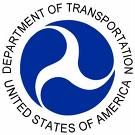DOT/FMCSA Formal Notices

The FMCSA has released violation data for the fiscal year 2021 and the numbers indicate some alarming data: of every 100 carriers who get audited by the DOT, less than 6 pass without a violation. And the remaining 94.5 percent? By the time their audit is complete, they have an average of six violations.

On March 23, 2020, the U.S. Department of Transportation (DOT) Office of Drug and Alcohol Policy and Compliance (ODAPC) provided guidance about the impact of the Coronavirus Disease 2019 (COVID-19) public health emergency on DOT drug and alcohol testing requirements for employers, employees, and service agents.
On behalf of the NorthAmerican Transportation Association (NTA), a transportation association representing the combined interests of all our transportation-related companies in the United States.
On September 10, 2020, Substance Abuse and Mental Health Services Administration (SAMHSA), HHS (Health and Human Services Department) proposed scientific and technical guidelines for the inclusion of hair specimens in its Mandatory Guidelines for Federal Workplace Drug Testing Programs. This is an early step to authorize hair specimens for regulated drug testing of Federal agencies and contractors.

On March 23, 2020, the U.S. Department of Transportation (DOT) Office of Drug and Alcohol Policy and
Compliance (ODAPC) provided guidance about the impact of the Coronavirus Disease 2019 (COVID-19)
public health emergency on DOT drug and alcohol testing requirements for employers, employees, and
service agents. On April 4, 2020, ODAPC provided supplemental information specific to performing
remote evaluations by Substance Abuse Professionals (SAP) and the re-qualification timelines for
collectors, Medical Review Officers (MRO), Screening Test Technicians (STT) and Breath Alcohol
Technicians (BAT), and SAPs. As published on April 4, 2020, this statement was effective through June
30, 2020. On June 17, 2020 the guidance was extended to September 30, 2020. As of September 22,
2020, ODAPC has extended the statement and it continues to be effective through December 31, 2020.

Federal Motor Carrier Compliance Investigations are still ongoing even during the COVID-19 pandemic – although virtually. And even though electronic logging devices have been mandatory for most fleets since last December, some companies find they may run into some trouble during one of these safety audits.















